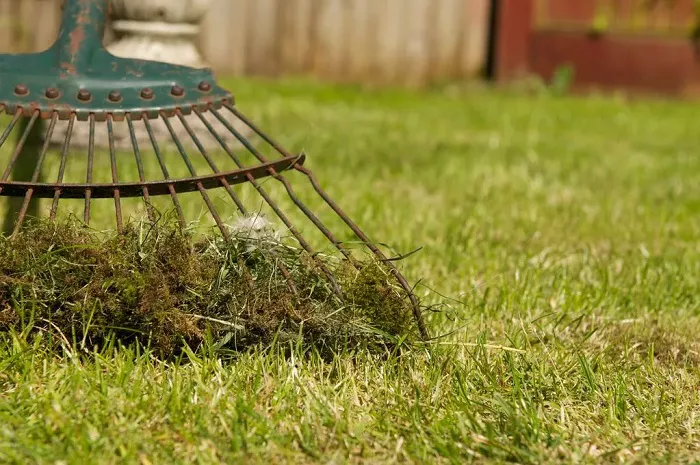Moss is a common issue in British gardens, often causing frustration for gardeners. After periods of wet, cool weather, it can spread rapidly, taking over lawns and creating slippery surfaces. What’s more, it can leach valuable nutrients from the soil and other plants. Raking up mossy patches is one of the most effective ways to deal with this problem. However, this doesn’t mean that the moss has to be discarded.
In a recent YouTube video posted on Gardening With Alan Titchmarsh, BBC presenter and garden expert Alan Titchmarsh revealed a surprising and beneficial use for raked moss. He suggested that instead of throwing it away, gardeners could either add it to their compost heap or leave a few piles around the garden. This is because moss is an excellent nesting material for birds. Many bird species use moss to build their nests due to its ability to be easily woven into the nest structure. It provides camouflage, comfort, and insulation, especially during cooler weather.
This is particularly important in the UK, where bird populations have seen a sharp decline in recent years. According to government data, there has been a staggering 16% drop in bird species across the country since 1970. This decline is attributed to several factors, most notably the loss of natural habitats due to farming practices and the use of harsh pesticides, which can harm birds and deplete their food supply.
Another way to support bird populations is by setting up bird feeders. Providing high-fat foods like suet, nuts, and seeds can help counteract the lack of natural vegetation and encourage birds to stay in the garden. However, it’s crucial to place these feeders in safe locations. The RSPCA advises placing feeders high above cat height and away from perches such as branches and walls. Domestic cats are known to kill a significant number of birds each year, with studies revealing that they kill between 160 to 270 million animals annually, a quarter of which are birds. Small songbirds, like finches and robins, are particularly at risk, so it’s essential to be cautious when providing food for birds.


